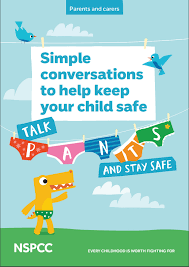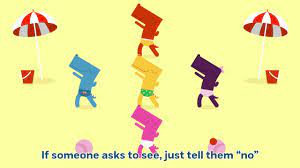PSHE AND RSE
Intent and Implementation
At Stonebroom Primary & Nursery School, we value Personal, Social, Health and Education (PSHE) as one way to support children’s development as human beings, to enable them to understand and respect who they are, empower them with a voice and to equip them for life and learning. To ensure progression and a spiral curriculum, we use Jigsaw, the mindful approach to PSHE, as our chosen teaching and learning programme and tailor it to your children’s needs. The Jigsaw programme offers us a comprehensive, carefully thought-through scheme of work which brings consistency and progression to our children’s learning in this vital curriculum area.
The Lead for PSHE and RSE at Stonebroom Primary & Nursery School is Mrs Hilton. If a parent/carer wishes to withdraw their child from the teaching of Sex Education, they should write to or email Mrs Hilton.
Aims of Personal, Social, Health Education & Relationships and Sex Education
The National Curriculum for PSHE aims to ensure that schools teach a broad and balanced curriculum that:
· promotes the spiritual, moral, social, cultural, mental and physical development of pupils at the school;
· prepares pupils at the school of the opportunities, responsibilities and experiences of later life;
· promotes British values.
Jigsaw covers all areas of PSHE for the primary phase including statutory Relationships and Health Education. Jigsaw PSHE brings together Personal, Social, Health and Economic education, emotional literacy, social skills and spiritual development in a lesson-a-week programme, which is delivered from Reception to Year 6. These weekly themes are embedded during weekly JIGSAW assemblies.
Developing ‘emotional literacy’ is a key to a healthy child. Regular check-ins are held in class and children are encouraged to reflect on their behaviour and actions.
Whilst JIGSAW provides the vehicle for PSHE delivery, it is threaded throughout our whole curriculum and linked at every opportunity to our school values:
Impact
By the time they leave Stonebroom Primary & Nursery School, our children will
- have the ability to be reflective about their own beliefs (religious or otherwise) and perspective on life, have knowledge of, and respect for, different people’s faiths, feelings and values, have a sense of enjoyment and fascination in learning about themselves, others and the world around them.
- use their imaginations and creativity in their learning and have a willingness to reflect on their own experience by participating in and responding positively to artistic, musical, sporting and cultural opportunities.
- recognise the difference between right and wrong and apply this understanding in their own lives and the consequences of their behaviour and actions.
- confidently work and socialise with other pupils, including those from different religious, ethnic and socio-economic backgrounds, valuing what we have in common, as well as what makes us different.
- have a genuine willingness to participate in a variety of community events through volunteering, cooperating well with others and being able to resolve conflicts effectively.
- have a good understanding of the fundamental British values of democracy, the rule of law, individual liberty and mutual respect and tolerance of those with different faiths and beliefs.
- have the opportunity to be leaders within their classroom, influencing change.
- have an understanding and appreciation of the range of different cultures in the school and further afield (local, national and global communities) which is an essential element of their preparation for life in modern Britain.
- have participated in a wealth of experiences and visits, many of which are listed in our Pupil Charter and on our Cultural Capital Maps.
Please click here to see an overview of the curriculum and our sequencing map
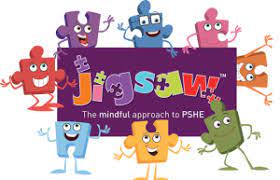
Relationship, Sex and Health Education (RSHE)
The Department for Education announced changes to Relationships and Sex Education following nationwide consultation. These changes came into effect from September 2020 and all schools are required to comply with the updated requirements. The statutory guidance can be found here.
The new guidance focuses on healthy relationships and keeping children safe in the modern world. It also covers a wide range of topics relating to physical and mental health, well-being, safeguarding and healthy relationships.
Learning about the emotional, social and physical aspects of growing up will give children and young people the information, skills and positive values to have safe, fulfilling relationships and help them take responsibility for their own well-being.
Consequently, from September 2020, Relationships, along with Health Education, became statutory, and formed part of the National Curriculum. For Secondary schools, Sex Education also became statutory. However, the DfE continue to recommend that all primary schools should have a sex education programme tailored to the age and the physical and emotional maturity of the pupils.
Where schools provide Sex Education at Key Stages 1 and 2, parents will have the right to withdraw their child from Sex Education but not from statutory Relationships Education, Health Education or what is taught in the Science National curriculum.
Here at Stonebroom Primary & Nursery School, puberty is taught as a statutory requirement of Health Education and covered by our Jigsaw PSHE Programme in the ‘Changing Me’ Puzzle (unit). We will however, provide pupils with support and advice from our FSW if this is needed sooner.
We conclude that sex education refers to Human Reproduction, and therefore inform parents of their right to request their child be withdrawn from the PSHE lessons that explicitly teach this i.e. the Jigsaw Changing Me Puzzle (unit)
e.g. Year 4, Lesson 2 (Having a baby) - this lesson has been incorporated into the Year 5 unit following consultation with parents. This will be reviewed each year.
Year 5, Lesson 4 (Conception)
Year 6, Lesson 4 (Conception, birth)
The school will inform parents of the right to withdraw their children from the lessons above before the Changing Me Puzzle is taught in the summer term. Any parent or carer who wishes to withdraw their child from a lesson or units of RSE must put their request in writing to Mrs Hilton.
Protected Characteristics
The Equality Act came into force from October 2010 providing a modern, single legal framework with clear, streamlined law to more effectively tackle disadvantage and discrimination. It stated that it is against the law (UK) to discriminate against anyone because of:
• age
• being or becoming a transsexual person
• being married or in a civil partnership
• being pregnant or on maternity leave
• disability
• race including colour, nationality, ethnic or national origin
• religion, belief or lack of religion/belief
• sex
• sexual orientation
These are called ‘protected characteristics’, and schools have a duty of care to protect all pupils from discrimination or harassment. Jigsaw PSHE helps schools understand and promote these characteristics more fully and in a childcentred way. The Puzzle ‘Celebrating Difference’ focuses on similarities and differences and teaches about diversity, such as disability, racism, power, friendships, and conflict; children learn to accept everyone’s right to ‘difference’, and most year groups explore the concept of ‘normal’; bullying – what it is and what it isn’t, including cyber and homophobic bullying – is an important aspect of this Puzzle.
The Relationships Puzzle also has a wide focus, looking at diverse topics such as families, friendships, pets and animals, and love and loss – all of which can help to deliver the vital messages behind the Equalities Act. A vital part of this Puzzle is about safeguarding and keeping children safe; this links to cyber safety and social networking, as well as attraction and assertiveness; children learn how to deal with conflict, their own strengths and self-esteem. They have the chance to explore roles and responsibilities in families, and look at stereotypes. All Jigsaw lessons are delivered in an age- and stage-appropriate way so that they meet children’s needs and can help them understand the wider world.
We have aligned their Jigsaw PSHE lessons to the Equality Act. The grid below shows how particular Jigsaw lessons address these themes:
| Protected characteristics | What this refers to | Links to Jigsaw |
|---|---|---|
| Age | Where this is referred to, it refers to a person belonging to a particular age (for example 32 year olds) or range of ages (for example 18 to 30 year olds). | Celebrating Difference Ages 10-11 Piece 3: Power Struggles |
| Gender reassignment | The process of transitioning from one gender to another. | Celebrating Difference Ages 5-6 Piece 6: Celebrating Me. Ages 7-8 Piece 5: Gender diversity Ages 8-9 Piece 1: Judging by appearances Ages 10-11 Piece 2: Understanding difference |
| Being married or in a civil partnership | Marriage is no longer restricted to a union between a man and a woman but now includes a marriage between a same-sex couple. Same-sex couples can also have their relationships legally recognised as 'civil partnerships'. Civil partners must not be treated less favourably than married couples (except where permitted by the Equality Act). | Celebrating Difference Ages 7-8 Piece 1: Families |
| Being pregnant or on maternity leave | Pregnancy is the condition of being pregnant or expecting a baby. Maternity refers to the period after the birth, and is linked to maternity leave in the employment context. In the non-work context, protection against maternity discrimination is for 26 weeks after giving birth, and this includes treating a woman unfavourably because she is breastfeeding. | Celebrating Difference Ages 3-4/4-5 Piece 3: Families Ages 7-8 Piece 1: Families |
| Disability | A person has a disability if she or he has a physical or mental impairment which has a substantial and longterm adverse effect on that person's ability to carry out normal day-to-day activities. | Celebrating Difference Ages 10-11 Piece 5: Celebrating difference |
| Race including colour, nationality, ethnic or national origin | Refers to the protected characteristic of Race. It refers to a group of people defined by their race, colour, and nationality (including citizenship) ethnic or national origins. | Celebrating Difference Ages 9-10 Piece 2: Racism |
| Religion, belief or lack of religion/belief | Religion has the meaning usually given to it but belief includes religious and philosophical beliefs including lack of belief (such as Atheism). Generally, a belief should affect your life choices or the way you live for it to be included in the definition. | Celebrating Difference Ages 9-10 Piece 1: Different Cultures |
| Sex | A man or a woman. | Celebrating Difference Ages 6-7 Pieces 1&2: Boys and Girls |
| Sexual orientation | Whether a person's sexual attraction is towards their own sex, the opposite sex or to both sexes. | Changing Me Ages 10-11 Piece 4: Boyfriends and girlfriends |
Follow the link for more details: https://jigsawpshe.com/hubfs/Bookshelf/protected-characteristics-ofsted-and-jigsaw.pdf
PSHE beyond Jigsaw
We strive to ensure that the principles of PSHE underpin all that we do in school. Our school rules and values support our positive learning culture and all staff contribute to maintaining a nurturing and safe environment for our children to come into every day.
We take every opportunity to engage in activities and events that enrich our PSHE curriculum and provide valuable learning experiences for our children.
You’ve probably already talked to your children about things like crossing the road safely. But have you spoken to them about how to stay safe from sexual abuse? We know it’s a conversation no parent wants to have, but we believe it can feel just as natural and easy as the road safety chat. We call it talking PANTS. From P through to S, each letter gives an important message for children as young as four to help them stay safe. The NSPCC have produce a simple guide for parents to support them with having conversations with their children to help keep them safe from abuse. It is called PANTS - The Talk Guide for Parents and can be accessed by clicking this link
https://www.parentkind.org.uk/blog/8857/NSPCCs-PANTS-campaign---how-to-help-your-child-to-stay-safe
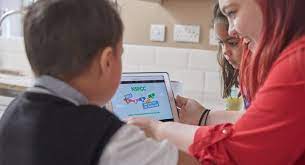
Where to get more information to help - The NSPCC have a range of other PANTS guides for parents, carers and children, including guides in a number of different languages and for people with a disability. They also have guides for foster carers, parents with a learning disability, parents of children with autism, and a film for deaf children. You can find these on the NSPCC website.
Childnet offers some good support and information for parents and carers. This link offers advice on a range of topics relating to online safety. 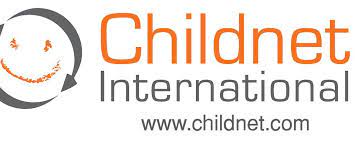
https://www.childnet.com/parents-and-carers/hot-topics
The Ealing Grid for Learning signposts parents and carers to a wide range of websites and support services. Their page can be found by clicking here










